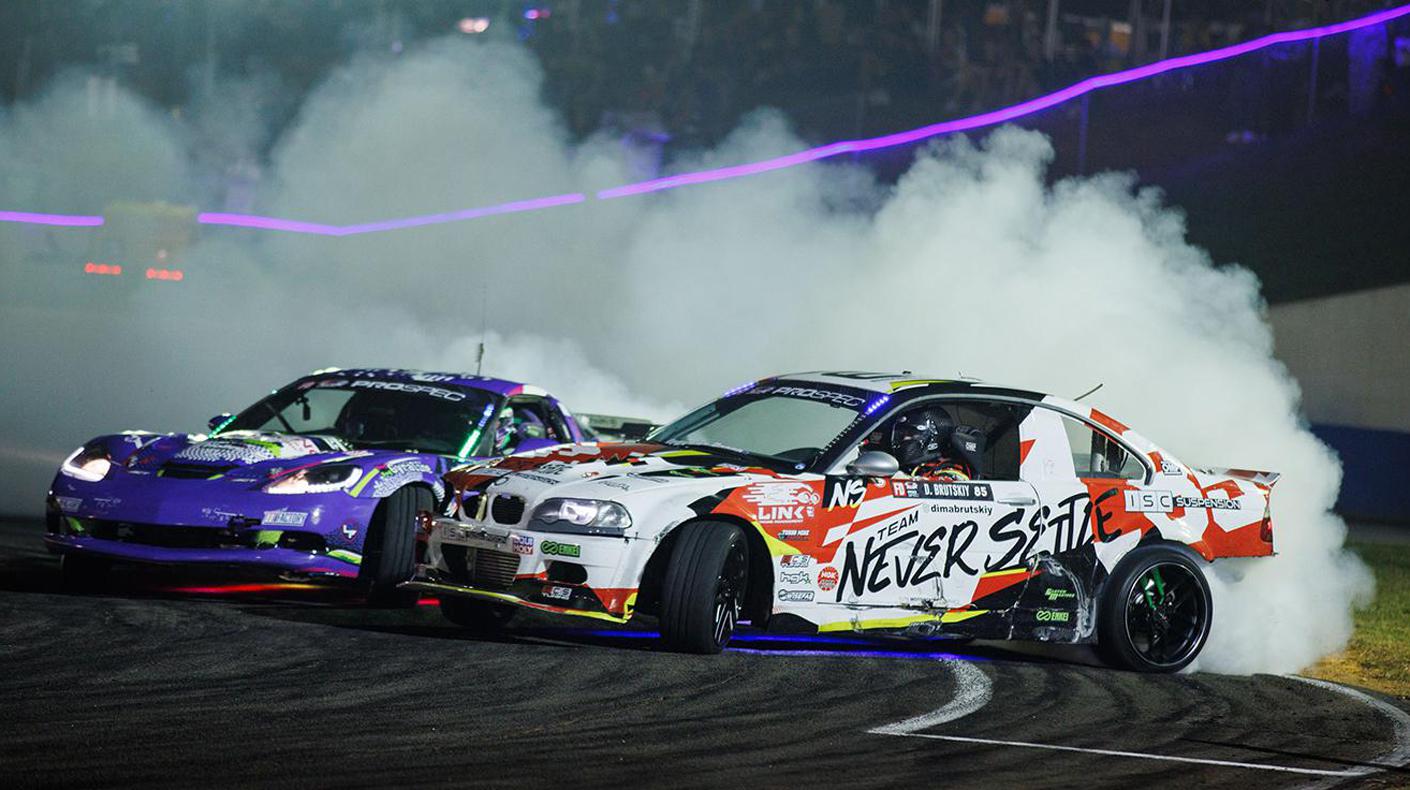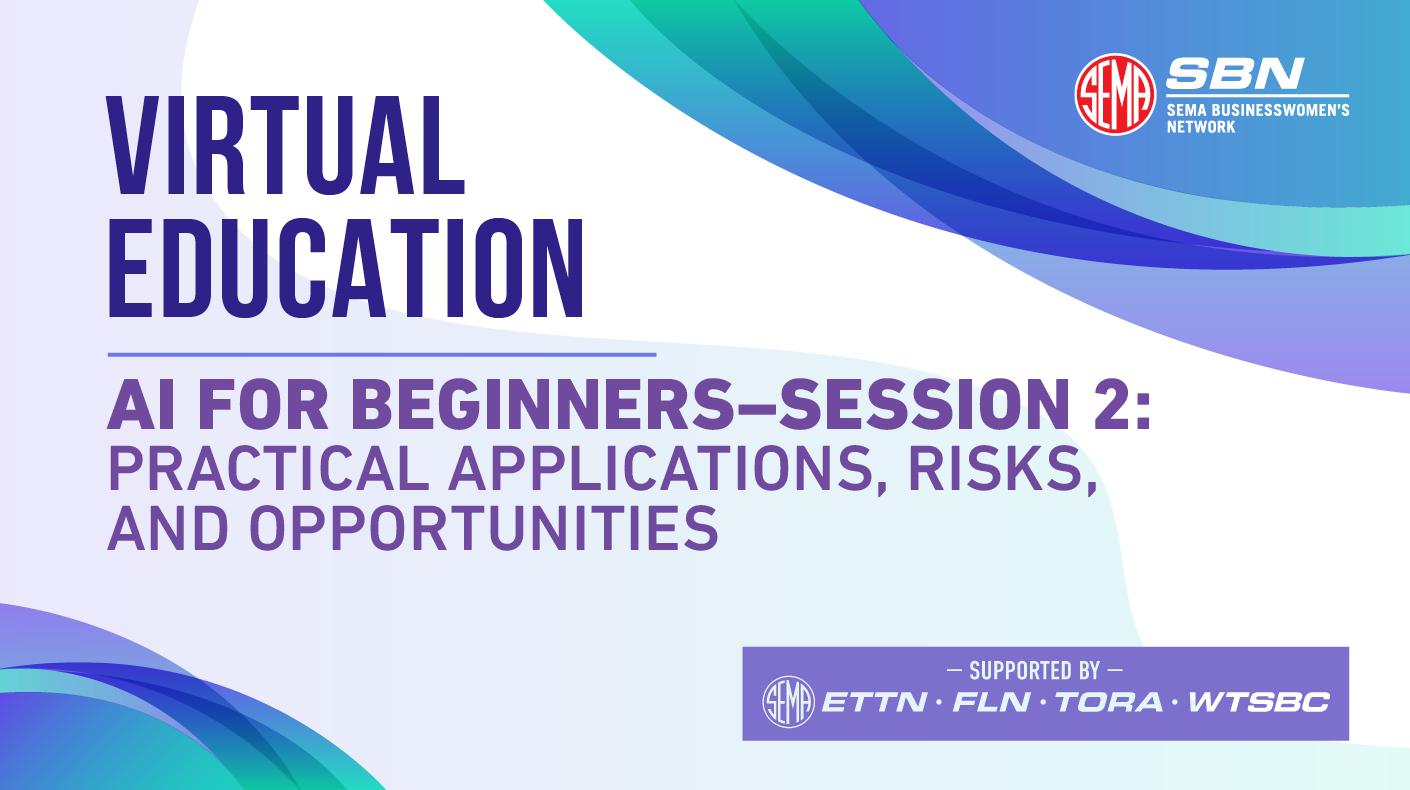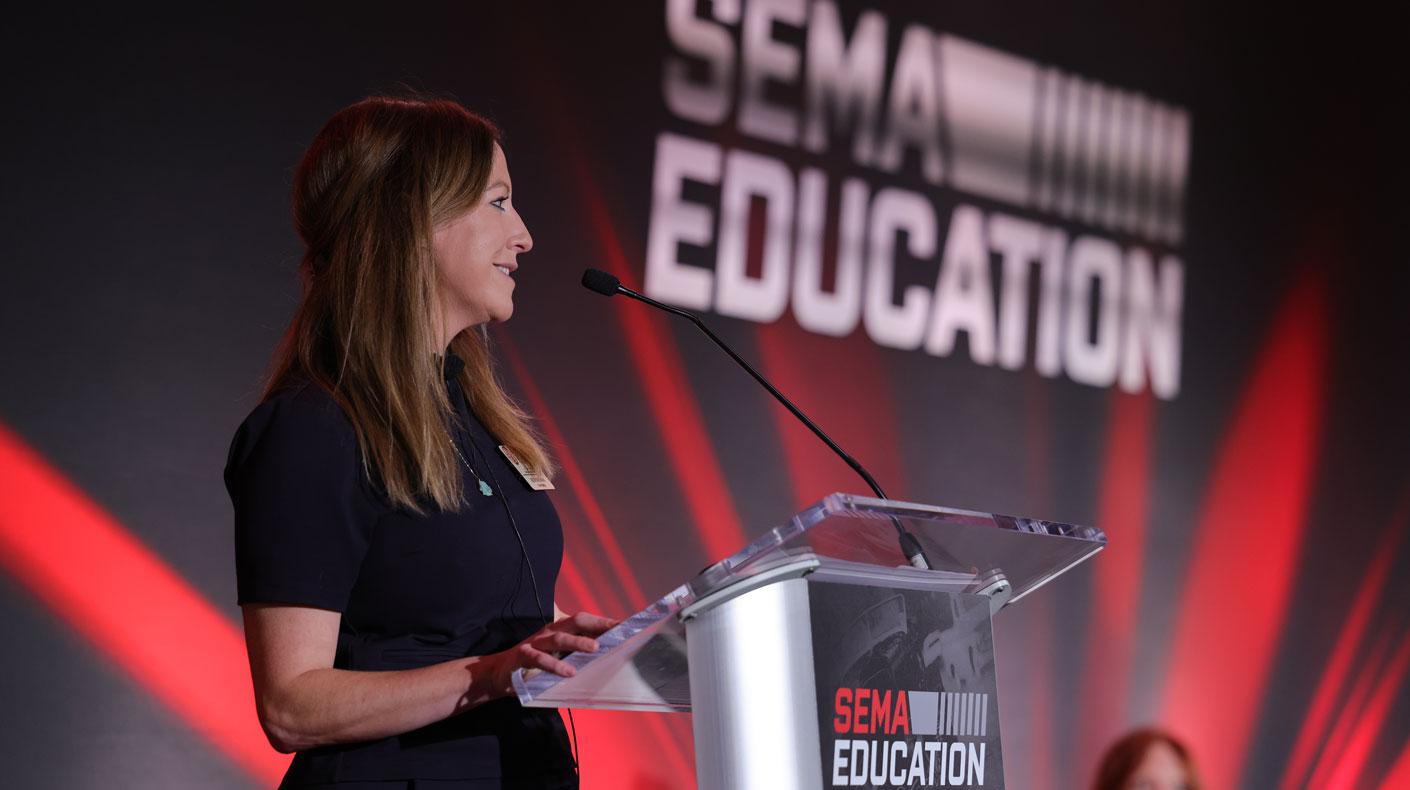By SEMA Editors
 Team B&M of Franklin County Career & Technology Center—the fourth-place team from the SEMA Show—qualified for the Hot Rodders of Tomorrow Engine Challenge Championship next month at the PRI Show in Indianapolis. |
“I think one of the biggest things as a coach that you have to try to take care of is to compensate for any surprises that may come along,” said Bobby Bard, coach of Team B&M’s Franklin County Career & Technology Center—the fourth-place team from the SEMA Show that qualified for the Hot Rodders of Tomorrow Engine Challenge Championship next month at the PRI Show in Indianapolis.
“One of the biggest challenges that we had to overcome was, like everybody else, the time barrier,” Bard continued. “As far as recorded times, at Carlisle in April we were at 26:09. We went to another qualifier at the Route 66 Dragway in July and we shaved 3 minutes off our time. Then at SEMA, with penalties, we were at 24:09. We had two runs where we had an intake manifold bolt that was loose, which was a four-minute penalty. Our time should have been right around 21 minutes. If we would have had clean runs, we would have come in second place.”
Although Team B&M ran into a few issues on two of their runs at the SEMA Show Dual Championship, Bard had already prepared his students for such surprises. By cross-training his team, they were able to overcome the setbacks and still qualify for the Finals. “When we came back from Illinois, I switched up everybody’s jobs,” explained Bard. “We practiced like that for a while. It was very interesting because we could still run 25-minute times. I wanted everybody to understand what everybody else was doing, so that they understand that each job is equally important, and so that when we do get out of sync, they know how to do other jobs, and they know how to do them well enough that it’s not going to hurt our time. And that did happen actually at SEMA. We had an issue with some lifters. By color, they were in the right place, but as far as the cylinder marking on the lifters, they were off. So that put one of my students behind. Another student jumped in and helped finish up his job and that actually helped us a lot.”
The students, whose school resides in Chambersburg, Pennsylvania, are now eligible for part of the $3.8 million in scholarships to be awarded through this program. They will compete against the other three teams that qualified at the SEMA Show, and four teams still yet to qualify at the PRI Show, in the Engine Challenge Finals.
Although the scholarship rewards are an incentive and help toward student careers in the field, Bard, who’s been part of the Engine Challenge program for the past six years, says that one of the greatest gains for his students is learning how to communicate and work together as a team. Such skills will carry over into all areas of the students’ lives, both professionally and personally.
“Some personalities will shine out under pressure,” explained Bard. “It does take having a leader on the team—someone who is willing to step out and say what needs to be done and if something gets out of sync. It’s not always just me seeing things, but someone on the engine that’s constantly communicating and making sure things are flowing.”
Attending and competing at the SEMA Show affords a host of benefits to these high-school students, not the least of which is an opportunity to interact with their sponsors. Meeting the next generation of automotive enthusiasts and professionals is something the sponsors welcome, according to Alex Ortega, vice president of sales for Driven Brands—the parent company of B&M, Hurst and Flowmaster.
“Having the kids come to our booth is a big reward for us,” stated Ortega. “We love talking to the kids and getting to know them, shaking their hands and saying thank you for their time and energy. “First and foremost, Hot Rodders of Tomorrow is doing this for the kids in a very positive manner. The students are doing something that’s creative, and it’s giving them a reason to do good in school, plus it’s an investment back in them that will benefit them long term. So that's priority number one. Number two is the team efforts. I’m really impressed with how big this has gotten over the last four or five years and how many companies, like Flowmaster, B&M and Hurst, have stepped up and said, ‘Yes I want to be a part of that.’ It’s not because we want to see our logos on the students’ t-shirts. It’s not because we want a reward out of it. What we like to see out of it is the investment in our youth.”
Ortega continued, “Overall, what I respect the most about the program is that it’s affecting the youth. You can clearly see that. I think for the most part, kids in America want to be associated with cars, because cars are such a big portion of our culture. As a kid growing up, I did not have the opportunity to be a part of a team and be a part of something big like Hot Rodders of Tomorrow. The volunteers, the team effort, everyone coming together and making it happen says a lot. You don’t get volunteers to step up for many projects, so what Rodney Bingham [president of Hot Rodders of Tomorrow] has accomplished in organizing and motivating the Hot Rodders of Tomorrow team is just pretty phenomenal. This initiative gives us a warmer feeling that our industry will still be thriving 20, 30, 40 years down the road.”
Ortega was correct in pointing out that it takes a massive team of volunteers and supporters to make the program, and each individual team, a success. Team B&M has great support not only from their school, but also from the greater Franklin County community. Parents of one of the students organized a car show fundraiser. The event, held in September of this year, helped provide the funds needed to travel and compete on a national level. More than 200 cars attended, and the team raised $2,800.
The community support behind the individual teams rivals the community atmosphere within the program itself. “I know my students and myself we really, really enjoy and appreciate the family atmosphere that Hot Rodders has,” Bard said. “The teams and other instructors are always willing to help out other teams. We’re all just a big family here and we want to see everybody be successful.”
Team B&M’s success has come in large part because of the support around them, but one can’t discount the hours they put into practicing each week. Bard says the students practice for 3–4 hours per night, twice per week after school. This level of commitment takes students who are not only interested in the performance industry, but who are also dedicated to working hard and making the necessary sacrifices. The time and energy required by the coaches is no small matter, either.
“I do this because I like the performance industry and I enjoy what my students get to do and seeing them succeed,” Bard said. “That’s what makes me feel that I’ve succeeded. We set clear goals. It’s important to them now and in their future to be able to set a goal, work hard and achieve it. One of our goals was the be top four at [the] SEMA [Show]. We achieved it. Our strategy going into the PRI Show is clean engines, no penalties. Our two penalties we received were recurring. We have come up with a way to ensure that doesn’t happen again. We know what we are capable of running, time-wise. If we run our game, our strategy and have a clean engine with no penalties, I think we’re going to fare out well in the Dual Championship.”





